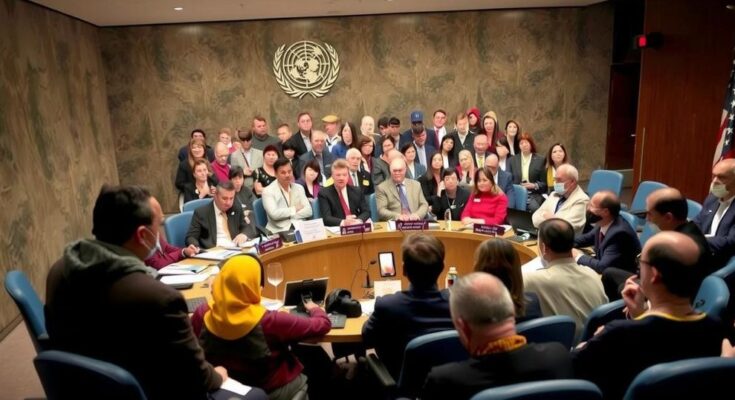Tibetans showcased their struggle for language rights at the UN Human Rights Council, condemning China’s ongoing suppression and school closures in Tibet. With significant contributions from activists and scholars, the event highlighted the dire consequences for those who advocate for Tibetan culture under oppressive conditions, prompting calls for international recognition and support.
In a passionate call for justice, Tibetans gathered at the UN Human Rights Council in Geneva, spotlighting China’s ongoing suppression of their language amidst the alarming school closures in Tibet. Hosted by the Helsinki Foundation for Human Rights and moderated by Kai Mueller from the International Campaign for Tibet (ICT), the event drew significant attention and concern from various UN representatives. Amidst insightful discussions, Tenzin Choekyi of Tibet Watch emphasized the dire risks faced by individuals in Tibet who advocate for language rights, detailing harsh penalties such as detention and torture. She illuminated the history of Tibetan protests and the grim repercussions for those challenging the Chinese regime. Palmo Tenzin, a senior researcher at ICT, highlighted the oppressive atmosphere overshadowing Tibet, where open dialogue is stifled and harmful educational policies threaten the Tibetan language and culture. “Tibetan children lose their mother tongue, are unable to communicate with relatives, and cannot access their culture and history,” she lamented, bringing the harsh realities to life for the audience. Gloria Montgomery from the Tibet Justice Center fervently warned attendees about the consequences of Chinese school closures, emphasizing the government’s international obligations to provide education in Tibetan. Despite the invitation to China’s presence at the event, their officials dismissed the Tibetan narratives, maintaining a long-standing pattern of denial about the ongoing plight in Tibet. Tencho Gyatso, President of the ICT, applauded the advocates for vividly portraying the grim realities under Chinese rule, insisting that China must respect the Tibetan people’s right to education in their mother tongue. He expressed that the world deserves the truth about Tibet’s rich heritage and the struggles they face. The gathering’s importance was amplified by a recent appeal from 100 Tibetan and Himalayan scholars to the UN High Commissioner for Human Rights, urging an end to China’s systematic closures of schools and forced assimilation policies. This event marked a pivotal moment for Tibetan advocates, striving for recognition and preservation of their cultural identity against a backdrop of increasing repression.
The plight of Tibetan culture and language has drawn international attention, particularly with reports of systemic suppression by the Chinese government. Educational policies targeting Tibetan language instruction have led to protests, with activists facing severe consequences. The UN Human Rights Council serves as an essential platform for advocacy, and gatherings like this one exemplify the ongoing struggle for Tibetan rights amidst challenges posed by the Chinese state.
The UN event illuminated the resilience of Tibetan advocates amidst stifling conditions, stressing the urgency of addressing China’s policies that threaten their language and culture. As calls for justice amplify, the international community is urged to recognize and support the rights of the Tibetan people, shielding them from ongoing repression that seeks to erase their heritage.
Original Source: www.business-standard.com



